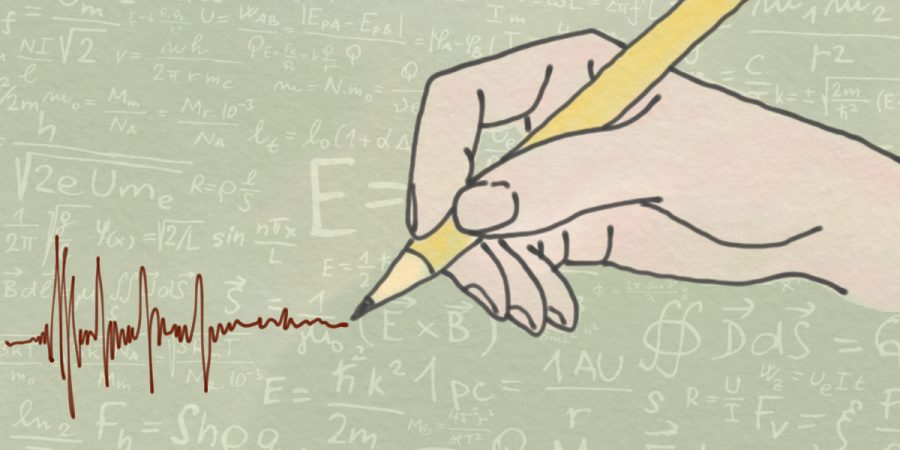Cracking Open Test Anxiety
October 18, 2021
7 AM on that Wednesday morning, the rising sun rays penetrated through the veil of fog, and almost 400 Warren juniors, like many around the nation at their schools, arrived at the premises of the Almond Campus to take the PSAT/NMSQT exam for a chance to receive the National Merit Scholarship. The pre-testing environment was filled with bustling students, some trying to make sure that they have all their pencils sharpened and calculators charged, while others trying to catch up with their friends before the 4 hour period of bubbling in circles. Regardless, it was a chaotic environment filled with laughter and jokes about the anticipated exam. After every hour of fast-paced problem solving, the test-takers received a 5-minute break to stretch and grab a snack. Each time that break was over and students settled back into their seats, with just a quick look around the room, you could witness endless amounts of feet tapping, pens clicking, pencils twirling, and fingers fidgeting. This only got progressively worse by the end of the testing session. Many of my friends, including myself, admitted to having sweaty palms and feelings of lightheadedness during the exam. All of us were a little confused as to why we were experiencing this nervousness given that this was only a practice SAT. The answer is test anxiety.
“Test anxiety is a psychological condition in which people experience extreme distress and anxiety in testing situations.” Just like different people have different stress levels during various circumstances, individuals also experience different degrees of test anxiety. Scientists have proven that having a little bit of test anxiety can actually contribute to a better performance because you are more focused on avoiding mistakes. However, for those with a more severe form of test anxiety, it can lead to blanking out on questions, losing concentration, slowing down, and even passing out, which could all impair performance.
When I was discussing this topic with one of my teachers, he mentioned to me that every time students would come into his class after a test or quiz in the period before, he would see a visible difference in the environment of the classroom; he stated that he had a harder time calming students down than usual, and this was more prevalent this year than all previous years. Going from testing at the comfort of their homes, for some people, and being thrown to take timed tests that are used to determine your abilities in a classroom filled with other students isn’t short of a stressful situation. However, the exact cause of these heightened levels of test anxiety is still uncertain.
Often times, people with lower test anxiety undermine the effects and consequences of high test anxiety, leading to negligence of the issue. We as a society need to make a change in this perception because test anxiety is real and it is out there in more people than you think. So, anytime a friend or a family member complains to you about being overly anxious for a test or a presentation, instead of just telling them to study more and get a good night sleep (still very helpful tips), try to empathize with them and calm them down with some meditating and positive affirmations. Even though these techniques may not completely get rid of test anxiety, it will definitely provide some relaxation to the test-taker so they can give their best performance.
Source:
Cherry, K. (2021, April 02). Test Anxiety Can Make It Difficult to Do Well on Exams. Retrieved from https://www.verywellmind.com/what-is-test-anxiety-2795368









